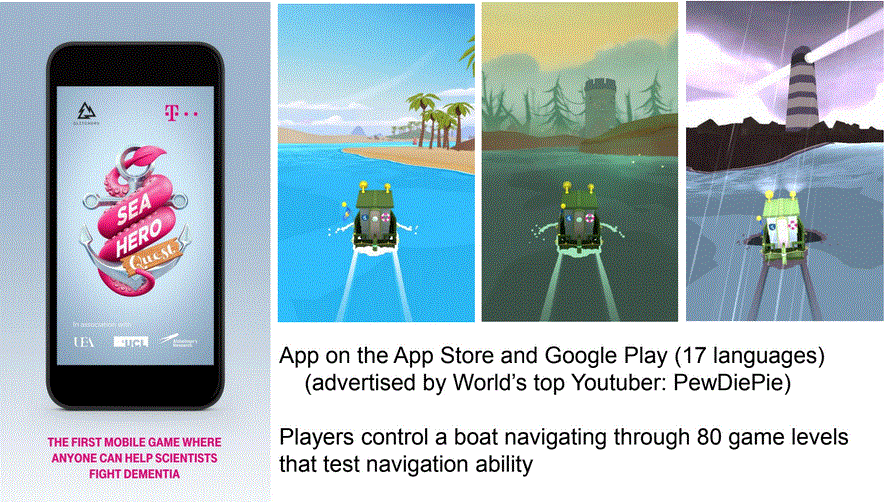In last week’s CEN seminar, Zita Patai from UCL presented findings from a project involving a mobile phone game, Sea Hero Quest, to assess spatial abilities.
Zita writes:
“Human navigation behaviors vary across nations, cultures, genders and ages, but until recently it has not been feasible to measure this fundamental human capacity on a global scale. Now, using a mobile phone based game, we have been able to measure spatial navigation ability in more than 2.5 million people around the world. Our results show that navigation ability declines with age, that gender differences can be explained by societal measures such as the gender gap index of a country, that people living in rural environments are better at finding their way around, and finally that behavior in the virtual game is related to real-world navigation ability. Additionally, data suggest that people with a genetic risk factor associated with Alzheimer’s dementia already show changes in navigation ability even though they are of middle age and are completely cognitively intact as measured with standard screening tests. These findings show that 1) we are able to, and should, measure human cognitive functions at a global scale rather than focus on small and homogeneous samples and 2) human navigation behavior may be a good measure by which to enable the early detection of dementia and potentially develop therapies in the future.”
You can read more about the project in this preprint (and here) and in a recent issue of Cell. You can also download and play the game here
You can follow Zita on Twitter @ZitaPatai

